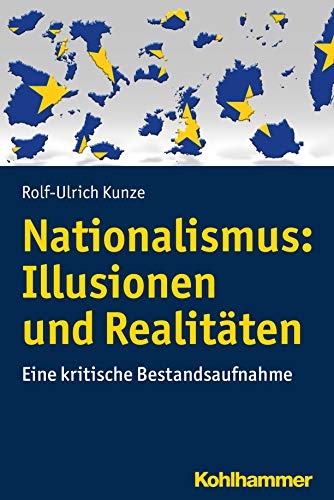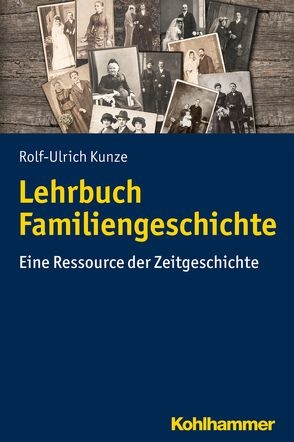Rolf-Ulrich Kunze, Reflexionen zur Zeitgeschichte. Essays on Subject and Methodology.
When does a democracy fail? How must political education develop in order to successfully meet the new challenges? Is our view of history influenced by globalization? In three essays, Rolf-Ulrich Kunze explores these current questions, which are relevant not only for academia but for our entire society. In doing so, he takes a stand on historical materialism in the current debate and discusses the often bizarre relationship between people and things. The contributions are situated in a larger context by a concise introduction and conclusion, so that the volume opens up a framework for reflection on central themes and issues in contemporary history and politics. Rolf-Ulrich Kunze, Reflections on Contemporary History. Essays on Subject and Methodology, Kohlhammer, Stuttgart, et al. 2020, 176 pp.

Hardly any other topic shapes the current political debate as much as nationalism. In his new book "Nationalismus: Illusionen und Realitäten. Eine kritische Bestandsaufnahme." Prof. Dr. Rolf-Ulrich Kunze takes a critical look at nationalism, explaining its historical conceptual and functional history, various types of nationalism theories, and the connection between nationalism and religion. Nationalism aims at identity, at emotionality. That is why Karl Wolfgang Deutsch speaks of nationalist thinking as an "epistemological catastrophe". Nationalism makes blind for the difficult and gray-stepped reality, because it creates new realities and simple, black and white relations. The nationalist world breaks down into us and them, good and evil. On the one hand, the nationalist-generated imagined community enables tremendous and violent achievements in war and peace; on the other hand, it is neither politically nor emotionally controllable - although all nationalists assume it is. Escalation is inscribed in it. Nationalism is a dangerous temptation for politics because it seems to open up an easily won resource. It offers boundless acceptance for many things that cannot be pushed through in the lowlands of laborious everyday negotiation.
Link_more
The history of the family is one of the well-researched cross-sectional areas of social and mental history. However, this is true for the early modern period and the most recent history from 1789 to 1914, not for that of the 20th century. The history of family time is a domain of family sociology, pedagogy, and psychology. It is presented as a resource to be developed in dialogue between historians and lay people interested in family history. A theory section deals with the motivation for studying the family within and outside academia, epistemological perspectives, and main lines of family development from the nuclear family to the patchwork. The practical part deals with concrete source problems of family history project work. (blurb)
More
"Global history has been an established subfield of history for a decade. Turning away from the Eurocentrism of research and analyzing world-historical developments is one of its basic demands. Just a glance at the important historical works of the 20th century shows that historical research was well aware of these questions and problem areas. World history thus appears as a precursor of global historical approaches. The book introduces the models and thought structures of global history in a vivid and exemplary manner and makes clear through a comprehensive analysis how global history has developed, what is meant by it, and what perspectives are associated with this new research direction." (blurb).
Link_more"The contemporary historical novel Inseljahre (Island Years) is the story of Hans Benthien, a historian from Lübeck who arrives in 1942 as a local commander on the West Frisian North Sea island of Terschelling in the occupied Netherlands. A conservative opponent of Hitler and a marginal co-conspirator in the officers' resistance to Hitler, he falls in love there with Willemijn Heemstra, the daughter of the local Reformed pastor. Willemijn is a teacher, a socialist and, with her father, a leader in the Terschelling resistance." (blurb).
Link_more
